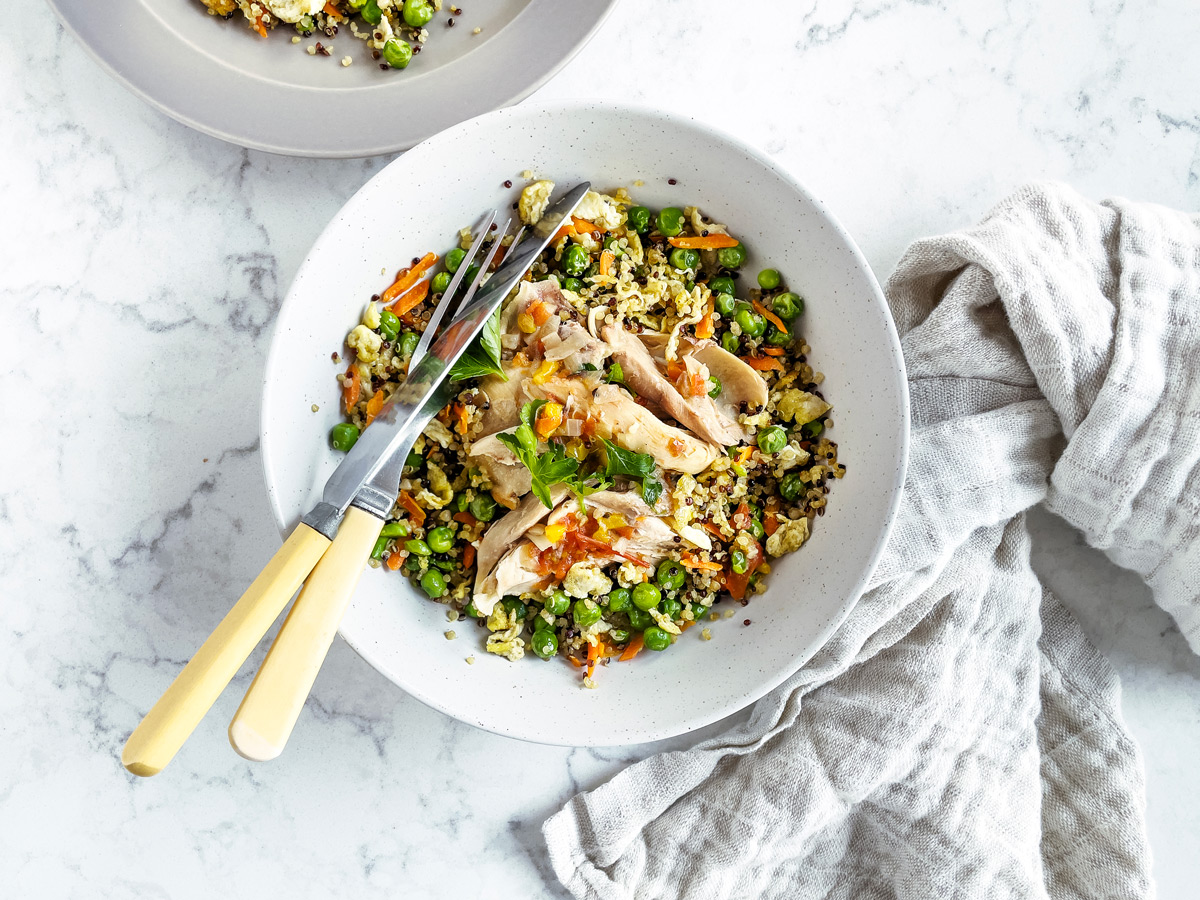
 Proteins are one of the fundamental nutrients our bodies need. But are we really sure we’re consuming the right amount?
Proteins are one of the fundamental nutrients our bodies need. But are we really sure we’re consuming the right amount?
Despite the growing awareness of this essential macronutrient, many people unknowingly consume an insufficient amount. This imbalance can negatively impact health, affecting not only our energy and vitality but also our overall well-being.
Why Are Proteins So Important?
When we talk about proteins, we’re actually referring to crucial molecules for human well-being. They primarily serve to build and repair tissues and muscles, promote cell regeneration, provide energy when needed, ensure the proper functioning of the immune system, help transport nutrients and oxygen, and play a role in blood clotting.
However, unlike fats and carbohydrates, our bodies do not store proteins. This means we must regularly obtain them through our diet.

Daily Protein Requirements
Official guidelines suggest about 50-60 grams per day for the average adult, but many experts recommend aiming higher, up to 100-120 grams.
This is particularly important for individuals over 50, as muscle mass naturally declines with age. Women in menopause can also benefit significantly from increasing their protein intake, improving both physical strength and quality of life.
How to Tell If You’re Getting Enough Protein
Recognizing a protein deficiency isn’t always immediate, but there are some signs that can help identify it.
Persistent fatigue, reduced physical strength, or muscle loss may indicate an insufficient protein intake. Fragile hair, weak nails, and dull skin are also symptoms to be mindful of.
Another common sign is frequent cravings for sweet snacks, which can occur when the body struggles to stabilize blood sugar levels due to inadequate protein intake. In more severe cases, protein deficiency can manifest as slower wound healing or increased susceptibility to infections, indicating a weakened immune system.
To check whether you’re consuming enough protein, assess your daily diet. Each meal should include a portion of high-quality protein, balanced with complex carbohydrates and healthy fats.
Foods That Are High in Protein
Not all proteins are the same, and it’s important to consider not only the quantity but also the quality of the proteins you consume.
Animal-based proteins are considered “complete” because they contain all the essential amino acids our bodies need.
However, excessive consumption—especially from red and processed meats like cold cuts, sausages, and bacon—can be harmful to health. Scientific studies have linked diets high in red and processed meats to an increased risk of cardiovascular diseases and other chronic conditions.
For a healthier choice, opt for lean meats like chicken and turkey, fish (especially those rich in omega-3s such as salmon, mackerel, and sardines), and low-fat dairy products like Greek yogurt and fresh cheeses. Among animal-based foods, eggs are also an excellent source of protein.
Plant-based proteins, on the other hand, offer an equally valid and beneficial alternative for our bodies.
Legumes such as lentils, beans, chickpeas, and peas are among the richest plant-based protein sources. In addition to providing essential amino acids, they also offer fiber, vitamins, and essential minerals. Other protein-rich plant foods include tofu, tempeh, and whole grains like quinoa, farro, oats, and brown rice.
These foods not only serve as good protein sources but also contain antioxidants and phytonutrients that contribute to overall health improvement.
Finally, it’s important to remember that a balanced intake of proteins, along with other macronutrients—carbohydrates and healthy fats—is essential for a well-rounded diet.
Ensuring a variety of fruits, vegetables, whole grains, and healthy fats from plant-based sources such as extra virgin olive oil, nuts, and avocados is key to achieving long-term optimal health and sustainability.
How to Eat More Protein (Without Eating Meat)
Protein Hot Chocolate Recipe for Guilt-Free Indulgence
This article first appeared on Grazia.it













